―Let’s start by having you introduce yourselves. Could you tell us about your job and the titles that you’ve worked on?
Image:
Yoshida Naoki:I work for Square Enix. I was a producer and director on Final Fantasy XIV. I came onboard this project in a roundabout way; the original FFXIV(※1) was released back in 2010. When the decision was made to remake it, I was given the task of leading the effort. We decided to scrap the original world and create something completely new. Now, 5 years later, we have released the first ever Expansion Pack(※2) for FFXIV entitled Heavensward. There are a lot of people around the world to whom I owe a debt for having been able to come this far.
Image:
▲FINAL FANTASY XIV:Heavensward
Futami Yosuke:I am a producer for Bandai Namco Entertainment. I’m currently working on the game adaptation of Dengeki Bunko’s Sword Art Online (SAO(※3)). Our SAO game will mimic an MMORPG(※4), but it will be designed specifically for gamers who aren’t crazy about the genre, or for those who perhaps have an interest but haven’t yet experienced an MMORPG, and of course for the SAO fans. We want to use this game to emphasize the fact that the worlds that MMORPGs create can offer a lot of fun.
Image:
▲Sword Art Online Lost Song
――There are many fans of the SAO books as well as the anime adaptation. In fact, many people started playing MMORPGs due to SAO. Many FFXIV players even name their characters after SAO characters.
Futami:There seem to be a lot of Black Swordsman(※5). (Laughter)
――Could you tell us a bit about your experience with MMORPGs?
Yoshida:Kawahara Reki(※6), the author of SAO, has been an avid MMORPG fan since the days of Ultima Online(※7). I’m actually of that same generation in terms of gaming. Ultima Online is known as the world’s first MMORPG, so obviously it influenced me a great deal. In terms of an MORPG(※8), Diablo(※9) comes to mind. Diablo showed me how much fun it could be to connect over a network and multiplay with someone far away. In Ultima Online, that experience became something that was shared with thousands of people worldwide. It was really revelatory. From there, my experience with MMORPGs just grew.
>Futami:I’m only a casual gamer when it comes to MMORPGs. The first one I played was Ragnarok Online(※10). Afterwards I played Nobunaga’s Ambition Online(※11). Then comes a long blank period, but now I’m getting into FFXIV.
Yoshida:I appreciate that. (Laughter)
Futami:I’ve played Diablo as well, but I generally have preferred my online games to be of the FPS or TPS variety, rather than MMORPGs. (Laughter) It’s always a great deal of fun to communicate over the network. Even when I wasn’t playing an MMORPG, there would be elements of network play in any game that I played.
――The SAO game will be mimicking the MMORPG experience. Has your past gaming experience served to guide you in developing such a game?
Futami:I’m actually pretty bad at communicating over a network. (Laughter) When people talk to me, I respond with proper grammar and complete sentences. If someone does me a favor, I get flustered trying to type up a long thank you message. I understand how the social aspect of gaming can be fun, but it can be intimidating at the same time. I usually would play solo(※12) or join in with a party on the spot; often times I’m just waiting around for someone to invite me to join them. When I read SAO, I could relate to how the protagonist, Kirito, was more attuned to solo gaming. I’m not against communicating with other gamers, but it can be hard to initiate the conversation. (Laughter)
Yoshida:I think that when online gamers see SAO, they see an ideal game. It’s packed with what those gamers want such a game to embody. On the other hand, people who aren’t familiar with MMORPGs and online gaming would read SAO and say, “I didn’t know that these worlds existed.” Everybody is able to identify with the characters of the story in one way or another. MMORPG gamers see it as an ideal world, while MMORPG neophytes are offered a glimpse of a world that they hadn’t previously known. In the story, Kirito acts as a lone wolf, but he still garners respect from others. I think that’s something that a lot of people can admire about him.
――Do you think that there will always be gamers who prefer to play an MMORPG as a solo experience?
Yoshida:There was a time when TRPG (Tabletop RPG)(※13) games were all the rage, but that’s a genre that really requires good communication skills. Once computers came onto the scene, CPUs took over GM (Game Master) duties, so gamers could play RPGs all by themselves. MMORPGs actually started out in the same way. At first, they appealed to a really hardcore group of gamers who had no problems with regard to communication. The appeal of MMORPGs gradually spread from there, and eventually people from all walks of life began to play them. The tricky thing is that all sorts of stressful situations from real life started to manifest themselves within the game world. (Laughter) However, you still want that sense of sharing this epic world and experience with other players. I like to compare it to fishing. When you go fishing, you’re pretty much on your own. But if you gaze across the lake, you might see other people focusing on their lures, fishing just like you are. You may not be directly communicating, but there is a sense of camaraderie there. I think that’s an important aspect, because without it, you’re only going to be able to appeal to the aforementioned hardcore gamers. A game needs to be appealing even if communication is held to the bare minimum. Of course, if you really want to be a protagonist in the story, then you’re going to have to be a bit more assertive. (Laughter)
――Mr. Futami, when you embarked on recreating the world of an MMORPG for SAO, which elements did you pay special attention to?
Futami:Mr. Yoshida just touched upon it, but I would say “Communication” was our biggest focus. I wanted to create a game that would draw attention to you from other players, even though you play as an NPC. You can’t approach NPCs yourself, so I wanted the NPCs to initiate conversations with the players. I tried to recreate the sense that the world was populated with many other players, particularly in Hollow Fragment(※14). In that game, there are 100 NPCs, and you can eventually form parties with them. As time progresses, some NPCs in town will actually talk to you as you walk by. Those are the type of immersive features that I worked on with our development team.
Yoshida:You really need to work diligently in-game in order to get the NPCs to start talking to you. I feel like anyone who can do that could have the same experience in a true MMORPG. (Laughter)
Futami:The trick is to not force the player to initiate a conversation. NPCs will talk to you, or send you messages. When someone contacts you first, you’re more likely to say “OK, I’ll help you on this quest”, and so on. (Laughter)
Yoshida:Maybe I should look into having NPCs that approach players as well. (Laughter)
Futami:By the way, I could tell that I hadn’t played an MMORPG in a while, because when I was playing FFXIV, I kept responding to mass chats (shouts). (Laughter)
――Some people would say that public chats(※15) were more robust in the older online games.
Yoshida:It was a different dynamic, because older games didn’t give you the ability to chat exclusively with your party. In Ultima Online, chat text was displayed above your character’s head, so you had to be close to each other for it to be readable. Not only that, but the chat log was a pain to access. You really needed to get physically close to someone and pay attention to what they were saying, which is quite realistic when you think about it. Once MMORPGs caught on, chatting became a focal point of the experience, and it evolved from there.
――Have you noticed any differences between domestic and foreign MMORPG players?
Yoshida:In terms of how the hardcore gamers approach things and react to game design, I don’t think that there’s any difference at all. Everybody around the world has the same reaction to a stingy drop rate(※16), right? (Laughter) I do get the impression that the skill level of the average gamer(※17) is a bit higher in Japan, but that’s about it. One thing that does stand out to me is how gamers treat the concept of being an individual within these game communities. In Japan, players strongly adhere to the communities that they are a part of. Even if they aren’t a member of a particular community, they tend to strive to blend in with regards to the tone and atmosphere of the setting that they’re in. You could view it as being harmonious, but you could also view it as being passive as well. On the other hand, foreign gamers are much more likely to be highly individualistic. You gather a group of these unique individuals together to form a party and go on adventures. Instead of going with the flow, everybody seems to discuss their objectives and opinions more freely.
――In bringing SAO to overseas markets(※18), is there anything in particular that you are doing to accommodate a different type of player?
Futami:Actually, there really isn’t. The SAO game only exists because of the books and the anime, both of which have been accepted by foreign audiences. Knowing that, I wouldn’t want to change the world and feel that Mr. Kawahara has created with regards to SAO. I think our objective is to deliver the exact experience that we would offer to a Japanese audience, and see how well it is received.
Yoshida:The idea for an SAO game could have only come from Japan. The foreign way of thinking is, you get into the books and anime of SAO and become interested in MMORPGs, so then you go and play an actual MMORPG. But in Japan the thought process is a bit different, and players are actually more interested in the fact that it isn’t a true MMORPG. The mock-MMORPG concept is very uniquely Japanese, and I think that foreign audiences appreciate that fact, so there’s really no reason to try and change things to cater to a particular audience.
Futami:We do get comments from foreign users in addition to those from Japan. Players from Japan tend to want the ability to create an original character. They want an avatar of themselves, so that they can go on adventures alongside Kirito. Foreign users are the opposite; they want to go on the adventures as Kirito.
Yoshida:Players from Japan are more familiar with the source material, so they are more likely to want to participate alongside these characters themselves. Foreign gamers tend to have the impression that one plays an MMORPGs as the protagonist, so if there’s an established character filling that role, then that’s whom they want to take control of.
――Actually, I would have thought that it would be the other way around.
Yoshida:Foreign players seem to be more interested in experiencing the uniqueness of the Japanese-designed characters and stories just as they are, without inserting themselves into the game.
――Does SAO adopt any gameplay elements from actual MMORPGs?
Futami:Yes, absolutely. Our developers had played a lot of FFXI(※19) along with FFXIV. I think that FFXI probably had the greatest amount of influence. Some of the guys were really into older titles like EverQuest(※20), and they’d use those games as a guide when trying to calibrate elements like drop rates and skills, so that a soloing player could enjoy the game as well. SAO is a single player RPG that won’t involve the kind of time commitment that an MMORPG would, so our drop rate is fairly generous. Of course, certain items may still be a pain to get. (Laughter)
――That seems to be a clear distinction between most offline games and MMORPGs. The time involved in playing and beating the game is very different.
Futami:With single player games, you need to make sure that it doesn’t drag on forever. You want to offer a substantial experience, but you need to strike a balance between too long and too short. Offline games usually require tens of hours, whereas MMORPGs often require hundreds of hours.
――MMORPGs have been around for roughly 18 years now, and while some things have changed, others have remained the same. The item drop rate, for example, is probably perceived differently by players today when compared to players of past titles.
Yoshida:Ultima Online technically went on indefinitely. The game was developed by Richard Garriott(※21), who basically gave players a bare-bones set of rules and a place to play the game. You started with a choice of 64 skills, and the rest was up to you. There was no clear objective or goal; you could literally sink an endless number of hours into that game. EverQuest came after that, and due to its monthly payment structure(※22), all the time requirements for various quests and objectives had to be calculated beforehand. Once World of Warcraft(※23) came out, the though process became:“How many hours will I play today?” Developers had to consider that casual gamers could most likely only afford to play 1 or 2 hours per day. This applies to our development process as well. We don’t think of the total gameplay time that will be required. Instead, we try to calculate how many hours per day or per week that something will require, and then base our designs on that figure.
――Is the concept of tailoring a player’s gaming experience to a set amount of time something that one needs to consider in developing an offline game as well?
Futami:I’ve never put much thought into it. I do make sure that players are still able to enjoy the game freely after completing the main story arc, so that they can choose to stop playing the game whenever they decide to do so. I also think that some management and oversight has become necessary for all consumer games. Call it “half-management”, if you will. After you release a game, you need to address user concerns with updates and patches, or add on new quests to keep things fresh. These updates allow you to tackle issues that you couldn’t have foreseen during development, and they are also a great way to incorporate and respond to ideas and criticism from users.
――Console games often offer DLC options these days, but it’s still rare for an update to completely change an aspect of gameplay, isn’t it?
Futami:We used FFXI and FFXIV as guides when developing our updates(※24). MMORPG updates really bring about a lot of excitement. With SAO, there were a lot of game elements that we couldn’t include in the launch product for one reason or another. But we refused to just give up on those features, so we released them as a free update in Hollow Fragment. It was a similar situation with Lost Song, where we just couldn’t include the PvP(※25) design aspect in our launch product. I was really adamant about having that feature, but if you just cram it into the game without proper development, you’re going to end up with half-baked results. So, we decided that we would give it the proper amount of time it required for development, and eventually release it as an update.
――Updates definitely seem to be an integral part of MMORPGs, especially in terms of keeping players engaged.
Yoshida:With regards to packaged games in Japan, it’s all about your sales numbers during that first week of release. I like that you can bypass that with updates. You can build up buzz instead of having it fade away, and your sales numbers can actually increase over time. I think that the players appreciate it as well. It’s like the PvP example that I just discussed. When the developers come out and say “We want to include this feature too, but it’s not ready, so we’re not going to include it until we’re satisfied with it”, I think that gamers can appreciate where we’re coming from.
――With all of the streaming and media tools readily available these days, you must get more feedback from users than ever before.
Futami:Yes, and a lot of the time, the users are thinking exactly what we’re thinking while in development. Of course there are instances where someone will point out something that we were totally oblivious to, but when a user touches upon something that we felt we had to fix in the first place, we make sure to get that sort of thing taken care of as soon as possible.
――FFXIV seems to have developed an environment where user feedback is delivered extremely quickly through “Letter from the Producer LIVE(※26)” and other official forums(※27).
Yoshida:Our generation of game developers are referred to as the 3rd generation, because we grew up playing games. Often times, as Mr. Futami just mentioned, what we want is exactly what the gamers want as well. Of course, there are long term issues and business considerations that affect things on our end, but I think that involving the developers in a game’s community is a very important communication tool to have. FFXIV did that really well. It’s essential to get honest feedback from users, and to respond to it in order to develop an understanding between the two parties. With SAO, the entire community already has a sense of how the SAO world operates from reading or watching the source material, so the conversation is often about how to adapt these elements into a gaming medium. By having these frank discussions, you can reassure the gamers who participate in this community.
Futami:I have a responsibility to represent my company, but I also try to be as honest and forthcoming as possible in these situations. Of course, it can come back to haunt you if you’re too candid during a live interview. (Laughter) But in general, I like to be honest with our users. If we can’t do something, I’ll tell them that. If we might be able to do it, I’ll say that too. I think that Mr. Yoshida does the same with “Letters from the Producer LIVE”.
Yoshida:If we can’t do something, I’ll certainly say so, although I may not disclose the reasons why we can’t do it. (Laughter) Obviously you never want to admit that you can’t do something, but you don’t want to give users a sense of false hope either. Also, leading people on can result in your development team harboring resentment as well. They don’t want to be made out to be liars, after all. If I were to promise gamers everything and the moon without consulting my developers first, I’d lose the developer’s trust and they likely would be less inclined to work on the game. The purpose of developing a game is to create something that the users will enjoy, so it really seems counterintuitive to lie to them. That’s not to say that we discuss anything and everything, of course. Sometimes there will be great demand for a certain feature, but the cost will just be too prohibitive for us to implement it. If it threatens to become an issue that will adversely affect the rest of the game development process, then we’ll be honest about not being able to implement it. I think that most producers are really averse to admitting that they can’t do something. However, I’m also tasked with acting as our director of development, so I would need to act in that capacity to make these decisions for the greater good.
――How have MMORPG players reacted to SAO?
Futami:One of the more interesting comments I got for Hollow Fragment said something like, “SAO is a great game for me, because I had been feeling burnt out from all the communication required in a real MMORPG. I’m going to take a break from MMORPGs while I play SAO, and go back to them once I’m done.” (Laughter) We also got some feedback from users unfamiliar with MMORPGs that would say things like, “I wasn’t aware that SAO was an RPG.” On the other hand, people who had only seen the anime would say things like, “I like the game, but it doesn’t have much action, so it doesn’t really feel like an SAO game.” I would say that about 40 percent of our feedback came from MMORPG users, and 60 percent came from people familiar with the books and the anime series. We got a lot of feedback from students in middle school and high school, so I imagine that many of them went on to play MMORPGs for the first time.
Yoshida:When you are trying to describe the MMORPG experience through a book or an anime series, there are certain aspects that you can’t leave out. The way the game was set up in the books really cherry picked all of the good parts from various MMORPGs, so I was actually a bit jealous of this ideal game that had been created. (Laughter) Things like Orange Players(※28) are clearly influenced by Ultima Online, where you can use karma to return to your former state. Those types of motifs and elements from actual MMORPGs really add substance to the story, and I think that it helps to convey the sense of awe you get from playing an MMORPG. You can understand what the author was going for.
Futami:Yes, when I read the SAO books, it gave me the desire to interact with other people in an MMORPG. I also like games such as .hack(※29), which uses its game world to frame a coming-of-age story. In SAO, a girl who is trapped in a death game decides to take a bath, so she opens a window to change her hairstyle. She’s basically only alive within this game world, but she still maintains these real world sensibilities, and I think that sort of role playing is really what gives the story a sort of sentimental and nostalgic edge. I spent my youth playing videogames nonstop, so I can really relate to it.
Yoshida:Of course from a developer’s point of view, with regards to that scene you just mentioned, we’re just going start to grumbling about how many hairstyle options we’ll need to come up with to fill that window. (Laughter) There really isn’t a large user base of MMORPG players in Japan yet. The same goes for the MMORPG development community. You can tell that the author really likes MMORPGs, and wants to see more games to be developed, which will in turn attract more gamers as well.
――MMORPGs seem to offer a more in depth experience when compared to other games. Sometimes, they can lead to offline communication as well. But compared to MMORPGs from the past, it seems like more players are becoming averse to trivial conversations while still wanting to maintain communications with other players.
Yoshida:I don’t think that’s a change in player behavior. Rather, it’s a reflection of the fact that there’s a large user base now, which includes more casual gamers alongside the hardcore gamers who’ve been playing MMORPGs since the beginning.
――Can you comment on the Content Finder(※30) system that FFXIV has used to let players form parties more easily?
Yoshida:In the past, I’ve said something like:“If you use the Content Finder, you can just treat most of the people you’re matched up with as though they were NPCs.” (Laughter) That’s not meant to encourage players to act out and be jerks, but rather to reinforce the notion that it’s OK to just form a party with people whom you’ve just met and to go out and have fun.
Futami:I started playing FFXIV in April, and I’ve just cleared the Crystal Tower:The World of Darkness dungeon(※31). Once I started working at my job, I didn’t have much time to invest in playing an MMORPG, but I was really impressed that I could get so far in the game in just two months. It’s such a kind and forgiving game! (Laughter) You can form parties with other players very easily, where everybody is supporting one another, and even beginners can blaze right though the game. I was really impressed by it. They also continuously use updates to expand the game. I always felt that MMORPGs were a bit difficult to start playing because of the inevitable time commitment required, but that really wasn’t the case with this title.
Yoshida:Even if you tell people that you can start playing the game now and still enjoy it, they tend to be skeptical. (Laughter) I think that a lot of users have this preconceived notion that MMORPGs have a high barrier to entry and a tough learning curve.
Futami:There’s just so much more information shown on-screen compared to an offline game, so I could see how that could be intimidating.
Yoshida:I’ve actually begun to consider that to be a positive thing. MMORPGs are all eventually going to require the sort of information load that you see in something like FFXIV right now. MMORPGs may be relatively new as a genre, but the amount of time that users have put into them is vast. The user’s experiences really shape and form the genre, so in order to meet their ever-growing requests and demands, you’re going to end up with a lot of information. We considered starting the game out with a very simple UI, and adding options and settings to increase the information load as you progressed through the game, but we decided against it. If a player were to progress through the game without realizing that such options existed, then they could end up being the same level as another player who’s had a far more enriched and in-depth experience. It was difficult, but in the end, we decided that that was a scenario that we wanted to avoid.
――SAO takes place in 2022, which is 7 years from now. How do you think MMORPGs will evolve in the future? With new hardware like the Oculus(※32) and Project Morpheus(※33) being developed, do you think that VRMMORPGs are on the horizon?
Yoshida:Eventually, yes. But first, I think that people will develop games where the players will physically ride on some sort of vehicle. When you attempt to walk in VR, your senses move you forward even though your leg hasn’t physically moved, and it can be very disorienting. The frame rates are also at around 60 fps right now, which is inadequate. You need to hit at least 120 fps or so in order to avoid dizziness, because at lower frame rates(※34) there’s a gap between what you’re seeing and what you are able to process. Those are pretty significant hurdles that any virtual reality based platform would have to overcome in order to be successful. There’s also the question of whether or not it’s even feasible to recoup the development costs involved in creating such a game... (Laughter) Having the hardware alone isn’t enough. In order to really make an impact, you’re going to need both the hardware and the software, so I think that we still have a long way to go in that regard.
Futami:I don’t know about 7 years from now, but it would be difficult in the present. MMORPGs are games that require long hours of play time. Given the type of VR hardware available right now, it would be hard to accommodate that. What could be interesting is a game that mimics the MMORPG experience without requiring the time investment. 7 years may not be enough time to see it really take off, but I think that full dive(※35) VR platforms have more potential than standard VR with regards to MMORPGs. This type of VR seems more suited to an arcade game type of experience.
Yoshida:Even considering the higher costs of development, if you can generate a unique and exclusive experience that garners headlines, I think that it could succeed. Of course, even 7 years from now, if your parents walk into your room and see you with this contraption on your head while you’re playing a game, they’re probably going to say, “What on earth are you doing!?” regardless. (Laugher)
Futami:There was a game called Lifeline(※36) for the PlayStation 2, and I remember that my parents caught me talking to the characters once. They were really worried about me. (Laughter)
Yoshida:I still get sideways glances from my parents whenever I use voice chat in a game. (Laughter)
――Where do you see MMORPGs 7 years in the future, including their business prospects?
Yoshida:I’m a realist, and I realize that this goes against everything that we’ve just talked about, but I think that MMORPGs will be in decline. Firstly, they are highly risky to develop. I think that most developers around the world would agree that the explosion of social devices has changed the average gamer’s life cycle. People just don’t have as much time to spend on games as they used to. In a way that’s a good thing, because many games have become so mainstream that they require less of a time commitment, but I think that developers will analyze this and determine that the costs are simply too high if a game requires major investment. Also, if you really want to make a significant MMORPG game, it takes a good 5 years of development. So, even if you started development today, you’d only have one game ready to go 7 years from now. In that time span, you could create any number of high concept F2P social games(※37). When you consider that, you have to wonder how many people are willing to invest the time and money required in developing a brand new MMORPG title. Of course, if someone does endeavor to do so, then you can bet that the end product will be an extremely polished MMORPG. It’s really a whole new ballgame when compared to the good old days of Ultima Online. MMORPGs are continuously improving and evolving, so things that were considered to be exceptional a short while ago will become the new baseline standard for the next game. I think that the industry as a whole will be shifting towards developing more native app type games(※38) that involve casual communication, rather than building hardcore-oriented games from scratch.
Futami:I’d like to make games that fall somewhere in the middle of those two extremes. (Laughter) I think that games that showcase certain elements of MMORPGs, but exist as sort of a network game / consumer game hybrid will be the new normal. In the future, MMORPGs will probably be populated largely by NPCs. NPCs will also evolve, to the point where you won’t be able to tell if you’re talking to an NPC or to another player. Eventually, it will feel like you are having a real conversation with an NPC. Basically, I want something like the experience of becoming friendly with Tataru(※39) in FFXIV. (Laughter)
Yoshida:Speaking of online games, I think that it will become a thing of the past. That is, the term “online game” will become irrelevant. Any game that is linked to an SNS is online by definition, so as more and more games take that route, the term will become less and less relevant. Every game will be an “online game”, so to speak. The question is, how will MMORPGs fit into this new landscape? Players looking for a hardcore MMORPG experience might be faced with very few choices 7 years from now. Hopefully, FFXIV will still be going strong, and of course I’d love it if more developers focused on the MMORPG genre.
――Finally, is there anything that you would like to ask each other?
Futami:I just want to know when Tataru’s next big adventure will be. (Laughter)
Yoshida:She’ll play a big role in Heavensward, so you can look forward to that. (Laughter) I was glad that we got to discuss SAO’s mock-MMORPG experience. We discussed the example of a player who was burnt-out on MMORPGs, and viewed SAO as a refreshing alternative. I think that MMORPGs need to take note, and incorporate some elements that allow users to take breaks from the grind in order to refocus. I think that everybody who worked on SAO was really invested in trying to convey the fun and excitement associated with playing MMORPGs. If a player decides to try out an MMORPG because of SAO and moves on to FFXIV, and subsequently comes away with the impression that SAO didn’t really represent the MMORPG experience at all, then that’s a failure on our part. That means we’ve lost a battle. (Laughter) I’d like to take the elements that SAO incorporates, and in turn flesh those out in a true MMORPG in order to show players what sort of experience they can have with these games. That’s the kind of game that I’d like to make.
Image:
Little footnote codex:
【※1:FFXIV】An MMORPG released in 2010. Due to various issues, it ended service in 2012. Ironically, the final event involving Bahamut destroying the game world drew much attention. Afterwards, a team lead by Yoshida Naoki brought the series back to life with Final Fantasy XIV: A Realm Reborn.^
【※2:Expansion Pack】A package that adds large amounts of gameplay data and revisions that cannot be covered by periodic patches to online games.^
【※3:SAO】A popular Dengeki Bunko series by Kawahara Reki. The protagonist, Kirito, leads his friends on various adventures set in a VRMMORPG world.^
【※4:MMORPG】Massively Multiplayer Online Role Playing Game. A type of online RPG where a single server can host thousands of players simultaneously.^
【※5:Black Swordsman】The nickname of Kirito, who is the protagonist of SAO.^
【※6:Kawahara Reki】The creator of the SAO series. Also known for Accel World.^
【※7:Ultima Online】Released in 1997 by Electronic Arts, this game is widely considered to be the original MMORPG. Players could choose from a variety of professions, including adventurer, builder, and thief.^
【※8:MORPG】Multiplayer Online Role Playing Game. A type of online game where multiple players participate in the same RPG. The server contains far less players than in an MMORPG. Players in an MORPG form parties with other players whom they meet in the game lobby.^
【※9:Diablo】An RPG released by Blizzard Entertainment in 1997. Multiple people could connect online and play through the same game world simultaneously.^
【※10:Ragnarok Online】An MMORPG released in 2002 by Gravity Interactive. In Japan, it is run by GungHo Online Entertainment. Known for its unique pixel art graphics, which captured a large Japanese audience.^
【※11:Nobunaga’s Ambition Online】An MMORPG based on the Nobunaga’s Ambition series. Released as a PS2 title in 2003 by Koei Tecmo Games.^
【※12:Solo Player】A player who chooses to play through an MMORPG by themselves instead of with a party.^
【※13:TRPG】An analog game featuring a GM who manages the game, and players who act out their characters.^
【※14:Hollow Fragment】The second game in the SAO series. In addition to content from the first game, Infinity Moment, new features such as the Hollow Area were added.^
【※15:Public Chat】A type of chat that is visible to a large group of players in your area.^
【※16:Drop Rate】The probability of earning an item after defeating an enemy. Compared to single player games, online games generally have tougher drop rates for rare items.^
【※17:Player Skill】The general skill level of the player controlling the character.^
【※18:Overseas Release】The second SAO game slated to be released for the PS4 this autumn was announced for both Europe and Japan.^
【※19:FFXI】Square Enix’s first MMORPG, which became a sensation in Japan. Released in 2002, it is still in service today, 13 years later.^
【※20:EverQuest】An MMORPG released in 1999 by Sony Online Entertainment. Based on FPS gameplay, the title was renowned for its detailed fantasy world and atmosphere.^
【※21:Richard Garriott】The game creator responsible for the Ultima series of games.^
【※22:Monthly Subscription】A type of payment system employed by online games. Players pay a set fee per month to access the game.^
【※23:World of Warcraft】An MMORPG released in 2004 by Blizzard Entertainment. Based on the game world of the RTS series Warcraft, players choose a species when starting the game and are bound to various factions based on their decision.^
【※24:Update】Patches that update the game to the latest version, adjusting game balance and adding content. In Lost Song, elements such as PvP gameplay and new bosses were added.^
【※25:PvP】Player versus Player. This gameplay feature allows player characters to fight one another.^
【※26:Letter from the Producer LIVE】Featuring Yoshida Naoki and various other staff members, this live broadcast discusses topics like large updates and events. Players seeking information about new features are naturally drawn to the popular broadcast, and it is considered to be an out-of-game type of game content.^
【※27:Forum】An official online forum hosted by Square Enix, where players can post various discussions regarding Final Fantasy.^
【※28:Orange Players】Players who commit crimes in SAO’s Aincrad are easily identified because their names change color to orange. These players are referred to as Orange Players. Players who kill other characters are referred to as Red Players.^
【※29:.hack】An RPG series released by Bandai Namco Entertainment. Part of Project .hack, these games explore The World, an imaginary online game.^
【※30:Content Finder】A system that lets players easily play through dungeons. Once a player puts out a request, they are matched with players across all servers who wish to play the same dungeon, and a party is formed.^
【※31:Crystal Tower】A raid that can be played with a party of up to 24 players. It is the final dungeon of the World of Darkness arc, recreating the dungeon of the same name that appeared in Final Fantasy III.^
【※32:Oculus Rift】A head-mounted VR display device. Supports head tracking, where the visuals move to match the movements of your head.^
【※33:Project Morpheus】A VR system for the PS4 being developed by SCE. Supports a 360 degree real time display that is linked to the PS Camera and controller movements.^
【※34:Frame Rate】The number of frames displayed per second. 120 fps indicates that 120 frames are displayed per second. The higher the number, the smoother the image.^
【※35:Full Dive】A VRMMORPG technology seen in SAO. Players control in-game bodies with brainwaves, allowing them to have a more immersive experience.^
【※36:Lifeline】A PS2 game released in 2003 by SCE. Players connect a microphone to their PS2 and play as an operator who guides the protagonist through the stages with their voice.^
【※37:F2P】A type of billing employed by online games, known as “Free to Play”. These games can be played for free, but additional content such as items must be purchased.^
【※38:Native Client】Technology that allows players to play games in-browser across a variety of platforms such as PCs or smartphones.^
【※39:Tataru】The receptionist for the Scions of the Seventh Dawn. Her unique style of speaking, cute appearance, and charming personality have made her a fan-favorite.^

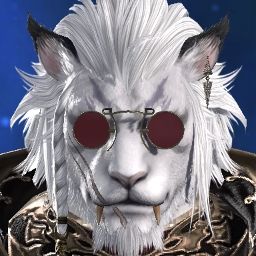
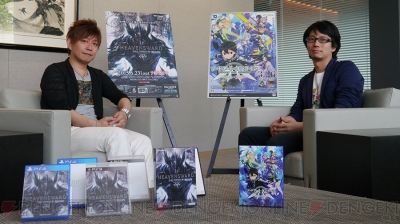
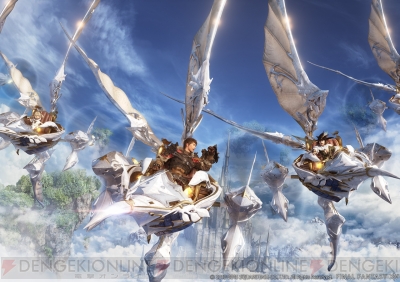
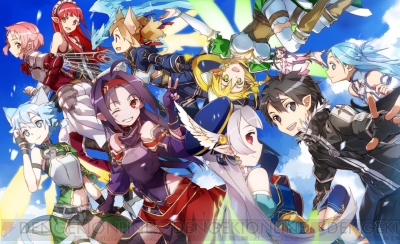
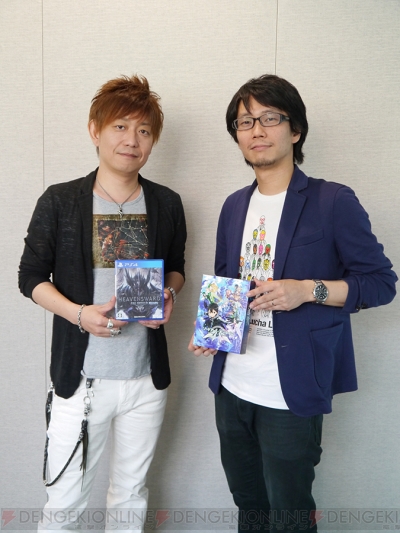

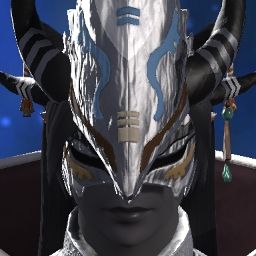

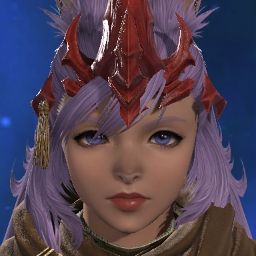
 Reply With Quote
Reply With Quote











